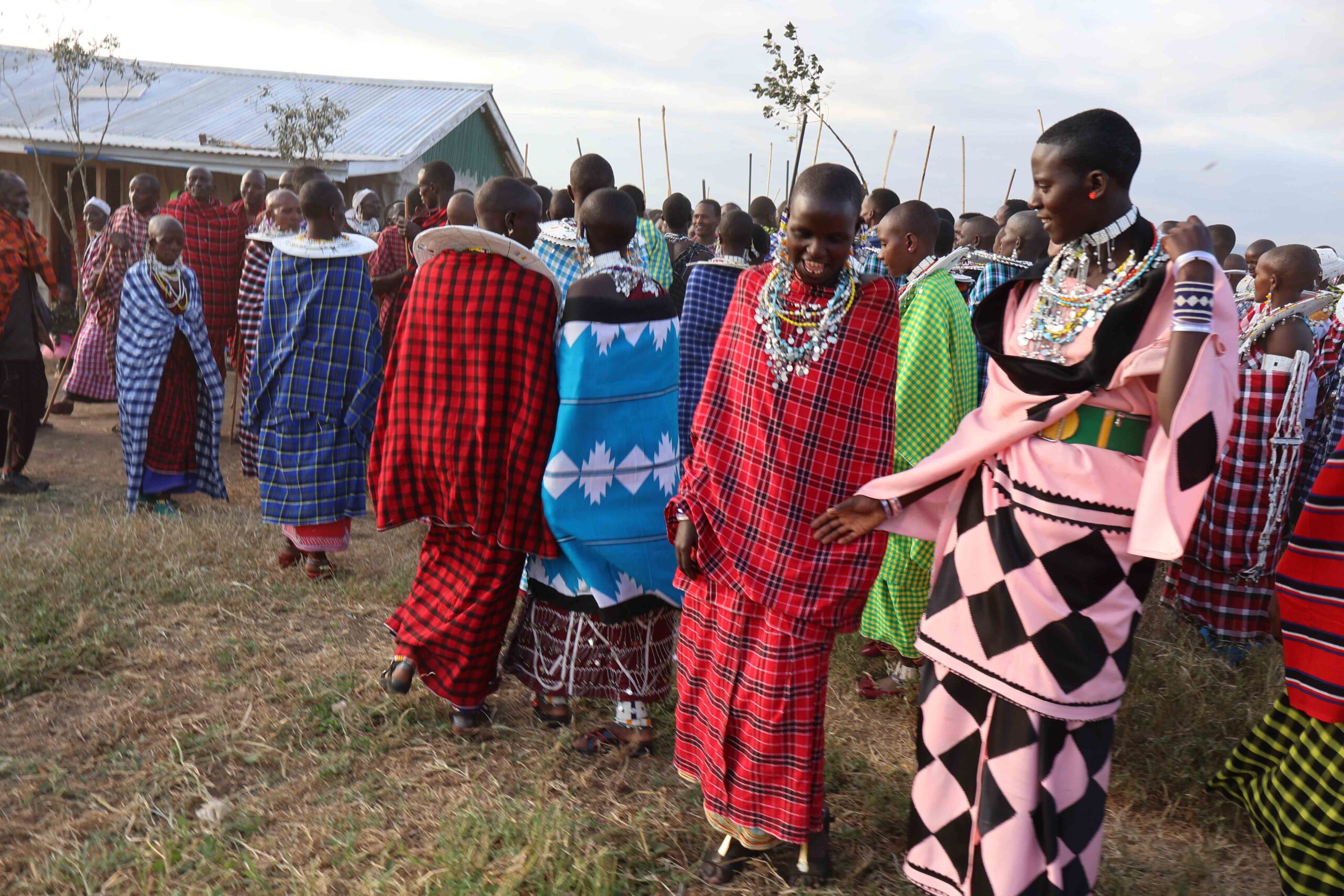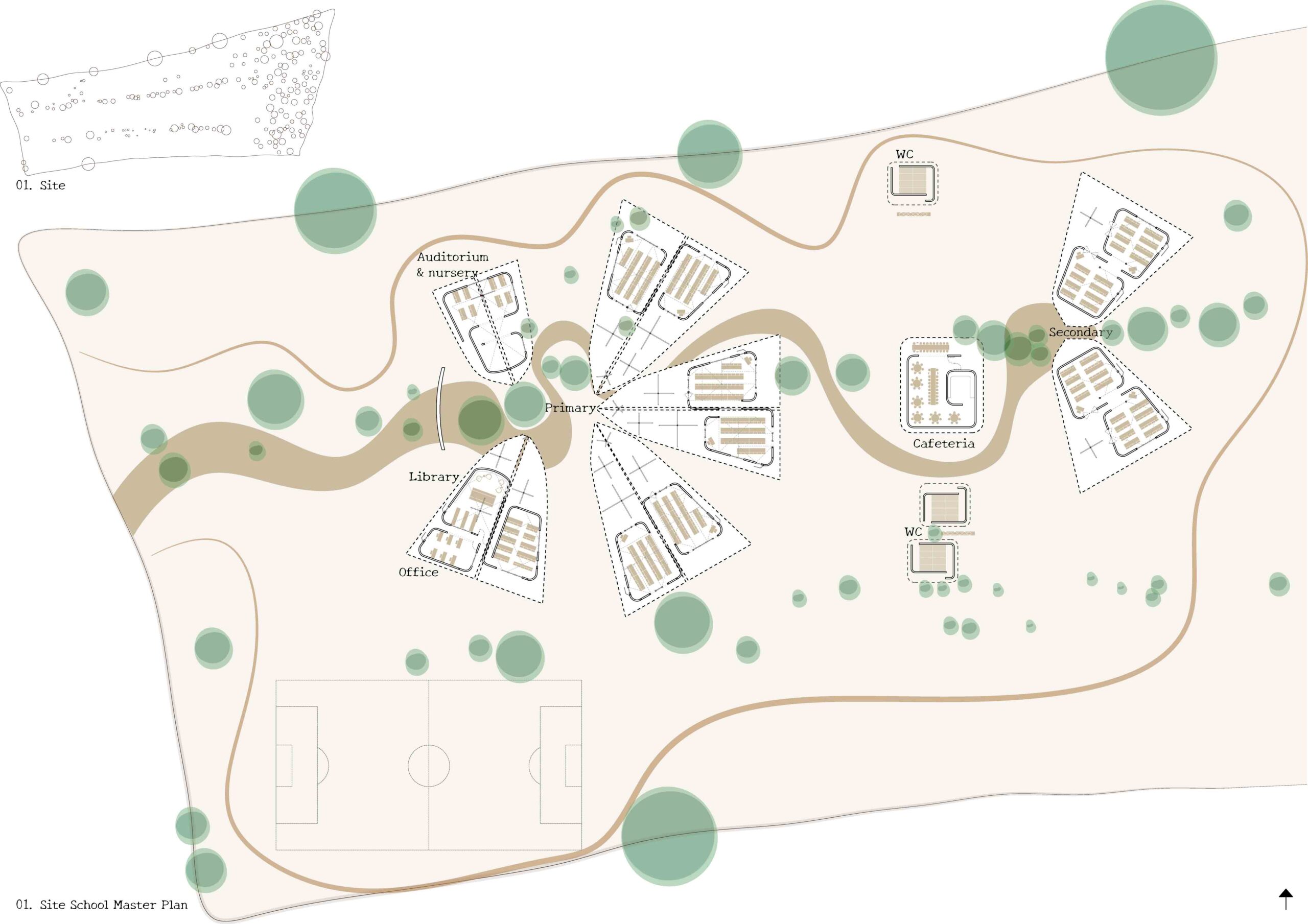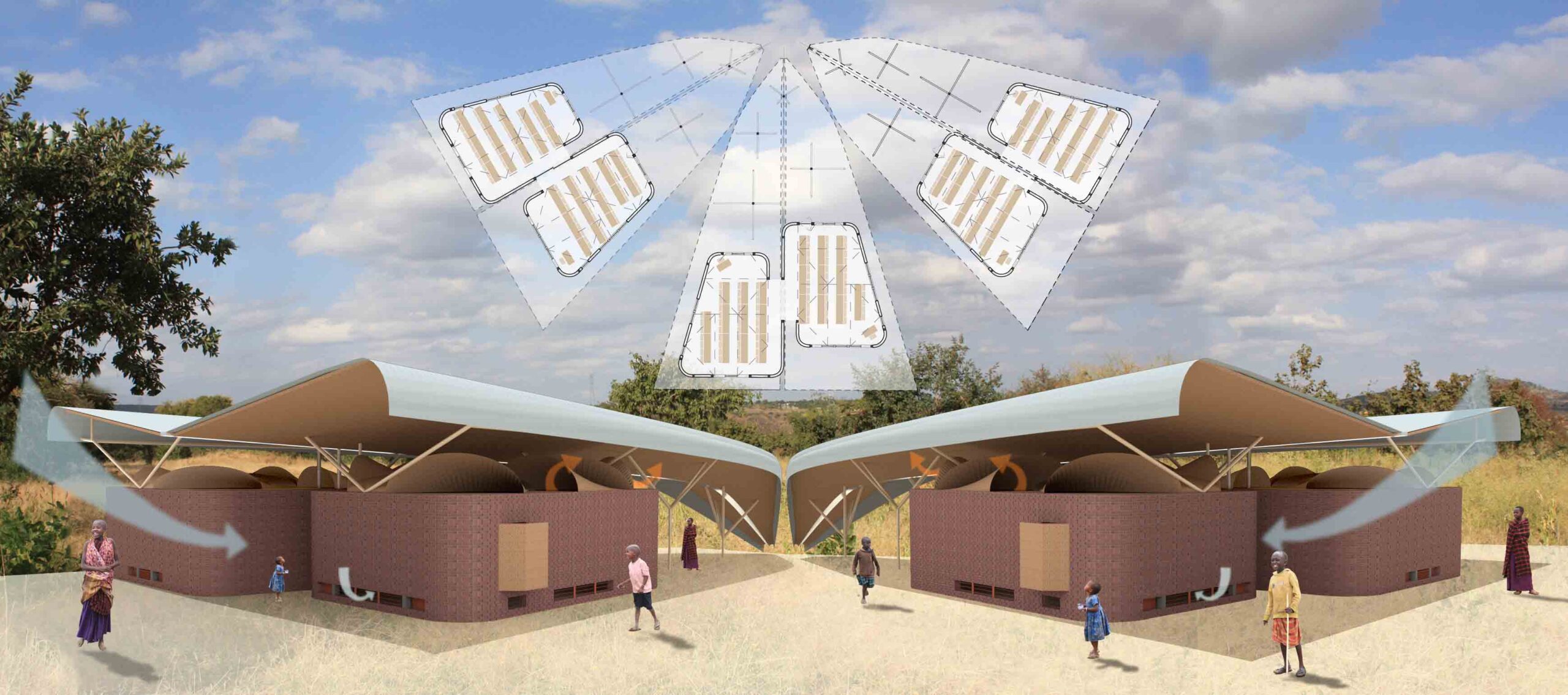Maria Degetau



Environmental design system for a Maasai educational building
THE PROPOSED EDUCATIONAL design thesis aims to protect the environment as well as the native culture of the Maasai people in the northern area of Tanzania. It is a project proposed and fought for by the community, where many generations have come together to think about how they want their future to be.
Affected by global climatic changes, Tanzania is one of the many countries near the equator that will suffer a dangerous temperature rise, directly threatening life and therefore the region’s culture and traditions. Future predictions see the local climate changing to tropical savannah. Starting from a detailed study of vernacular African building techniques a precedent is set to inform the design of this research. Appropriate passive strategies for this type of climate are adopted to achieve maximum comfort.
A holistic programme is proposed to take into consideration women’s modern role without forgetting traditional and vital responsibilities, such as the provision of water and quality education.
The existing gender inequality gap, exacerbated by climate change, was addressed by refocusing the harvested rainwater supply into the centre of the community and therefore into the building. Consequently, the building will take its form, applying all the relevant environmental strategies to achieve comfort throughout the year and most importantly throughout the warmer seasons of the future.
The project was based on on-site fieldwork and community participation, allowing learning about traditions which informed the project and development of tailored solutions to meet the changing needs of Orkisima’s Maasai community.

